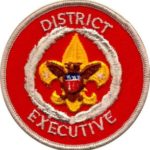 If you’re a regular visitor to this site, you are most likely a volunteer Scouter. Someone who gives of their time and effort to help the Scouting program exist for our sons and daughters and the communities in which we live.
If you’re a regular visitor to this site, you are most likely a volunteer Scouter. Someone who gives of their time and effort to help the Scouting program exist for our sons and daughters and the communities in which we live.
You’re more than aware that as our kids grow, so do we, and we tend to move along and follow them through the programs that they participate in. When they’re in Cub Scouts, we volunteer as leaders in the pack, and when they move on up to Boy Scouts, we usually leave Cub Scouting behind and try our hand at volunteering in our son’s troop.
At each step of our own Scouting trail, we learn about what’s expected of us as a volunteer. The first thing we do after completing our Youth Protection Training is to find and take the position-specific training for the job we’ll be doing. But as we know, training isn’t the final step but only the first step in our road to learning about Scouting and the work that we do. We gain knowledge along the way, through training courses, day-long seminars, resources like Scouting Magazine and just talking to our fellow Scouters at Roundtable and other gatherings, formal and informal.
And just when we get the hang of things, we leave.
Or so it seems. We never really finish learning, and there is always something else that we don’t know, or aren’t clear on. But we pull up stakes in one program or in one unit and move along to another, or we take a leap into a district or council position and need to start learning about either a completely different job or about the job we had previously but from a different perspective.
The engine that turns the wheels of Scouting is volunteers. We really couldn’t have Scouting if it wasn’t for the million-plus adults who, as they say, pay to do Scouting.
But supporting these million-plus – the mechanics that grease the wheels, clean the windshield and put gas in the tank – are the paid professional Scouters who work for our local councils. Most councils have one or two unit-serving executives for each district, which can encompass a service area spanning several communities or several counties and contain units serving thousands of Scouts. They help recruit volunteers and youth, try to start new units to offer Scouting in areas that aren’t served, raise money for the council from community leaders and partners, organize day camps and activities, and try to mediate disputes and provide answers for the hundreds or thousands of volunteers who look up to them. They’re on the road from dawn to past dusk, sometimes six or even seven days a week. It is a sometimes thankless job usually with modest pay, and one wonders if they ever get to see their families. We get to know them and how to reach them, look for them at Roundtable, and build a relationship that helps us do our volunteer jobs that much better.
And just when you get them “trained”, they leave, too.
There are many who make Scouting their life’s work. They start out as a unit-serving executive or assistant, maybe work their way up to a council position, and frequently transfer around the country to find a better position or is closer to home. But the one constant in professional Scouting seems to be change. In order to grow as a professional Scouter, one needs to be prepared to move along, to find another position a step up, and usually to relocate.
Unfortunately, in most cases, being a unit-serving executive can be a real grind, and though most are committed to our program, greener pastures frequently lie outside Scouting. Some make the choice to leave after a few years, to make more money, do significant work in other areas, and often most importantly to have more time for their families and possibly return to volunteer as a Scouter as well.
It’s not easy saying farewell to a professional partner with whom you’ve invested several years in getting to know and work well. I’ve been a volunteer for going on seventeen years and in that time in our district I’ve worked with at least a dozen professionals who have been of tremendous support to us volunteers but who have taken jobs elsewhere in, or outside of, Scouting in order to further their careers. And each was replaced by an equally committed professional who we’ve had the pleasure of getting to know and train in the ways of our district.
It’s bound to happen to you as well, if it hasn’t already. Just as your favorite mechanic retires or moves away and you have to find another, meeting a new district professional and helping him or her learn the ropes is one of the great things we can do to help keep the wheels of Scouting turning.
Thanks for your service to the Mighty Ottawa District, Dan Centers. Best wishes for success in the future. I look forward to working with you again on the volunteer side.
This post first appeared on Bobwhite Blather.


